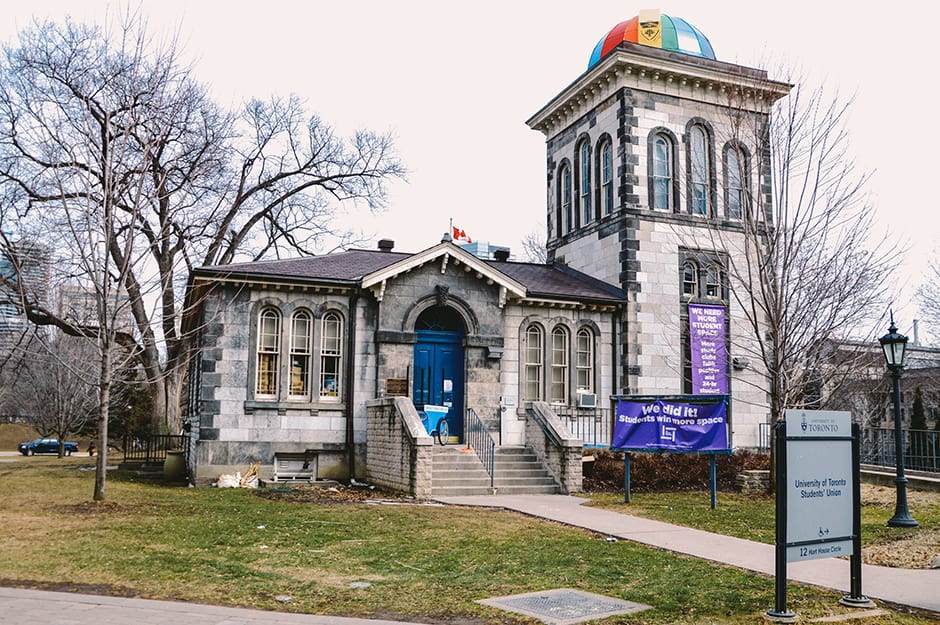The University of Toronto Students’ Union (UTSU)’s profits and losses statement for 2014–2015 year show a total increase of $23,999.37 in student clubs funding, discrediting allegations voiced by 1UofT UTSU presidential candidate, Madina Siddiqui during March 16’s Executive Debate.
Throughout the evening, Siddiqui, who has served as president of the Afghan Students Association this past year, spoke out about the apparent decrease in clubs’ funding, only to be challenged by a member of the audience during an open question period.
“A lot of clubs have complained about this, have raised concerns. Clubs funding was lower than it was before,” she said. “Why is that? Why are clubs given less? Clubs do amazing work.”
The UTSU’s financial statements from this past year show that the union spent $145,143.83 on long-term funding, with an additional $6,434.10 for start-up funding, $8,440.20 for short-term funding, and $2,982.50 for summer funding; bringing total funding on the year to $163,000.63.
The union’s budget for this year allocated $165,000 for long-term funding, $10,000 for short-term funding, and $3,000 for summer funding, totalling $178,000. That budget was revised however in February.
The revised budget shows a larger increase in clubs funding, with no short term funding, but $184,000 in long-term funding, totalling $187,000.
Following the events of the debate, a complaint was lodged with the chief returning officer (CRO) of the executive elections alleging that, in claiming that clubs funding decreased, Siddiqui had intentionally misrepresented facts and in doing so, violated the Elections Procedure Code (EPC). The CRO ruled that the complaint was not substantial enough to warrant demerit points however.
“Viewing the video [of the debate], it is obvious to the CRO that Siddiqui believed these claims and was not intending to subvert the truth,” read a portion of the ruling.
The CRO also stated that the complaint itself did not conform to the spirit of the elections. “The idea that an audience member could make an unsubstantiated claim and that the candidate would be bound by that claim is ridiculous.”
However, the union’s Elections & Referenda Committee overturned the CRO’s decision, issuing three demerit points to Siddiqui for unintentional misrepresentation of fact, after the complainants — representatives of the competing Hello UofT slate — conceded that Siddiqui did not make the comments with the intent to deceive anyone.
Siddiqui said that, according to club presidents, clubs received less funding this year.
“Many club presidents told me that the level of funding they have received this year is less then the year before,” she said. “But even for clubs who told me their funding stayed the same or went up a bit, there was a clear issue of [there] not being enough funding available to support all the great things clubs want to do on campus.”
When approached for comment, current UTSU president Ben Coleman attributed the outstanding funding issue to the $15,000 funding cap implemented by last year’s Clubs Committee.
“The policy was pursued by [then vice president, campus life] ZiJian Yang at the end of last year, apparently to ensure that there was still money left to give the smaller clubs at the end of the funding process,” Coleman explained.
Siddiqui said that 1UofT hopes to “substantially increase the money available for clubs funding” and she suggested running a referendum for a clubs levy. “With just a small contribution from students, we will be able to double or triple the money available for clubs,” she added.
The voting period of the UTSU elections ends at 6:30 pm on March 24; the results will be posted to the UTSU’s website 48 hours after polls close.


